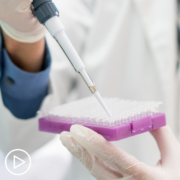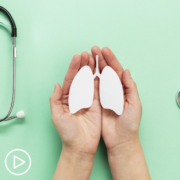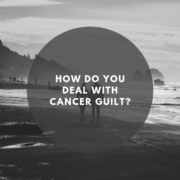What Are the Risks and Benefits of Joining a Clinical Trial?
What Are the Risks and Benefits of Joining a Clinical Trial? from Patient Empowerment Network on Vimeo.
Why should a cancer patient consider a clinical trial? Dr. Pauline Funchain of the Cleveland Clinic explains the advantages of clinical trial participation.
Dr. Pauline Funchain is a medical oncologist at the Cleveland Clinic. Dr. Funchain serves as Director of the Melanoma Oncology Program, co-Director of the Comprehensive Melanoma Program, and is also Director of the Genomics Program at the Taussig Cancer Institute of the Cleveland Clinic. Learn more about Dr. Funchain, here.
See More from Clinical Trials 101
Related Resources:

|

|

|
Transcript:
Katherine Banwell:
Why would a cancer patient consider participating in a clinical trial? What are the benefits?
Dr. Pauline Funchain:
So, I mean, the number one benefit, I think, for everyone, including the cancer patient, is really clinical trials help us help the patient, and help us help future patients, really.
We learn more about what good practices are in the future, what better drugs there are for us, what better regimens there are for us, by doing these trials. And ideally, everyone would participate in a trial, but it’s a very personal decision, so we weigh all the risks and benefits. I think that is the main reason.
I think a couple of other good reasons to consider a trial would be the chance to see a drug that a person might not otherwise have access to. So, a lot of the drugs in clinical trials are brand new, or the way they’re sequenced are brand new. And so, this is a chance to be able to have a body, or a cancer, see something else that wouldn’t otherwise be available.
And I think the last thing – and this is sort of the thing we don’t talk about as much – but really, because clinical trials are designed to be as safe as possible, and because they are new procedures, there’s a lot of safety protocols that are involved with them, which means a lot of eyes are on somebody going through a clinical trial.
Which actually to me means a little bit sort of more love and care from a lot more people. It’s not that the standard of care – there’s plenty of love and care and plenty of people, but this doubles or triples the amount of eyes on a person going through a trial.
Katherine Banwell:
Yeah. When it comes to having a conversation with their doctor, how can a patient best weigh the risks and benefits to determine whether a trial is right for them?
Dr. Pauline Funchain:
Right. So, I think that’s a very personal decision, and that’s something that a person with cancer would be talking to their physician about very carefully to really understand what the risks are for them, what the benefits are for them. Because for everybody, risks and benefits are totally different. So, I think it’s really important to sort of understand the general concept. It’s a new drug, we don’t always know whether it will or will not work. And there tend to be more visits, just because people are under more surveillance in a trial.
So, sort of getting all the subtleties of what those risks and benefits are, I think, are really important.
Katherine Banwell:
Mm-hmm. What are some key questions that patients should ask?
Dr. Pauline Funchain:
Well, I think the first question that any patient should ask is, “Is there a trial for me?” I think that every patient needs to know is that an option. It isn’t an option for everyone. And if it is, I think it’s – everybody wants that Plan A, B, and C, right? You want to know what your Plan A, B, and C are. If one of them includes a trial, and what the order might be for the particular person, in terms of whether a trial is Plan A, B, or C.










